Clement Pulaski
Daily Stormer
April 24, 2014
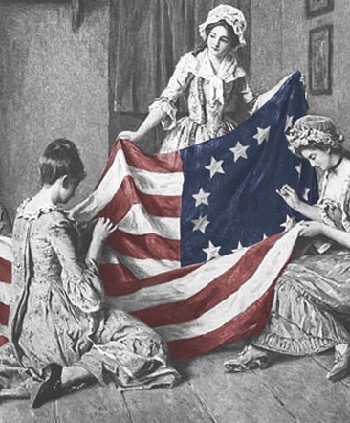
“A simple democracy is the devil’s own government.”
-Benjamin Rush, signer of the Declaration of Independence
In a previous post I showed how the Founding Fathers of America viewed virtue and morality as indispensable to the preservation of liberty. In this post I intend to expand on this fundamental connection between virtue and liberty, and show how this connection shaped the essence of Americanism. It was because the founders of America loved virtue and order that our nation was established as a republic, and not a democracy.
While the Founding Fathers were certainly lovers of liberty, they saw liberty as a means to an end, not an end in itself. Liberty was one of the many factors that played a role in establishing a rational form of government, a republic where the natural interests of different classes and regions were brought into harmony. This focus on virtue and harmony is the mark of a truly just government, and is notably absent from the communistic/democratic demand for the leveling of society and abolition of all human distinctions. The French Revolution, not the American, was the first major push towards pure democracy and the chaos that always accompanies it. In France, the revolutionaries fought for the delusion that “freedom” is a universal human right that should be given to all people, and that absolute freedom is always desirable in all circumstances and automatically leads to happiness. One of the great deceptions of our age is the idea that the American Revolution embraced this false doctrine of pure democracy. However, when one explores the actual words and thoughts of the Founding Fathers, this deception is quickly destroyed.
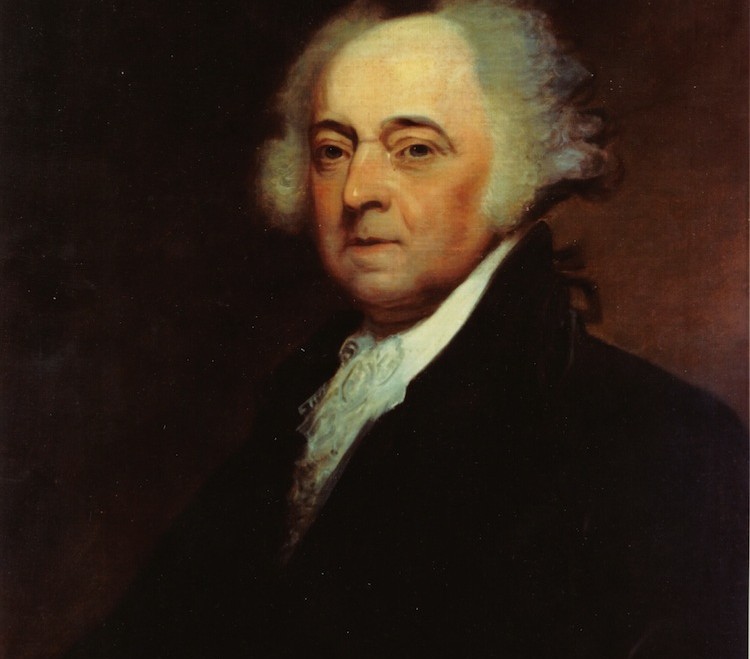
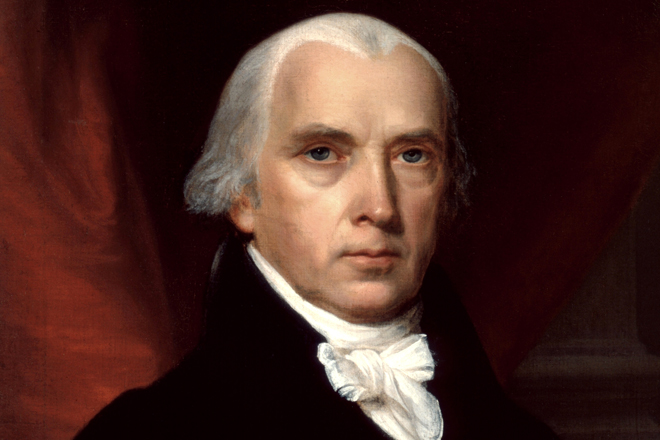
The first important point to understand about the Founding Fathers is their focus on Classical civilization, and particularly on the ancient republics of Greece and Rome. This interest in the Classics, and not a desire for universal human liberation and revolution, was the strongest influence on their conceptions of liberty. The rise and fall of these ancient republics taught them the true value of liberty as a means of preserving virtue and combating vice. Thus virtue and liberty are mutually dependent, both nurturing and preserving each other.
From The Founders and the Classics, by Carl J. Richard:
Steeped in a literature whose perpetual theme was the steady encroachment of tyranny upon liberty, [the Founding Fathers] became virtually obsessed with spotting the early warning signs of impending tyranny, so that they might avoid the fate of their classical heroes. They learned from the political horror stories of the ancient historians that liberty was as precarious as it was precious–precarious because cunning individuals were constantly conspiring against it, precious because virtue could not survive its demise. Tyranny was the worst fate not so much because it deprived one of liberty, as because it deprived one of virtue. The corrupting effects of living in tyranny–the dehumanizing sycophancy and the degrading collaboration necessary to avoid the tyrant’s bad graces–were more abhorrent and disgusting than the oppression itself.
…[T]he founders were as disgusted by the fawning courtiers who crowded around George III and his colonial government in search of preferment as they were by demagogues who manipulated popular passions to increase their own power. The equation of virtue with independence of thought and action, when combined with a concomitant equation of vice with “factionalism” (Roman historians despised the factio, the favorite instrument of demagogues), contributed greatly to the antiparty sentiment which dominated the early history of the United States.
Classical republicans feared conspiracies not so much because tyranny deprived citizens of their liberty as because it robbed them of their virtue.
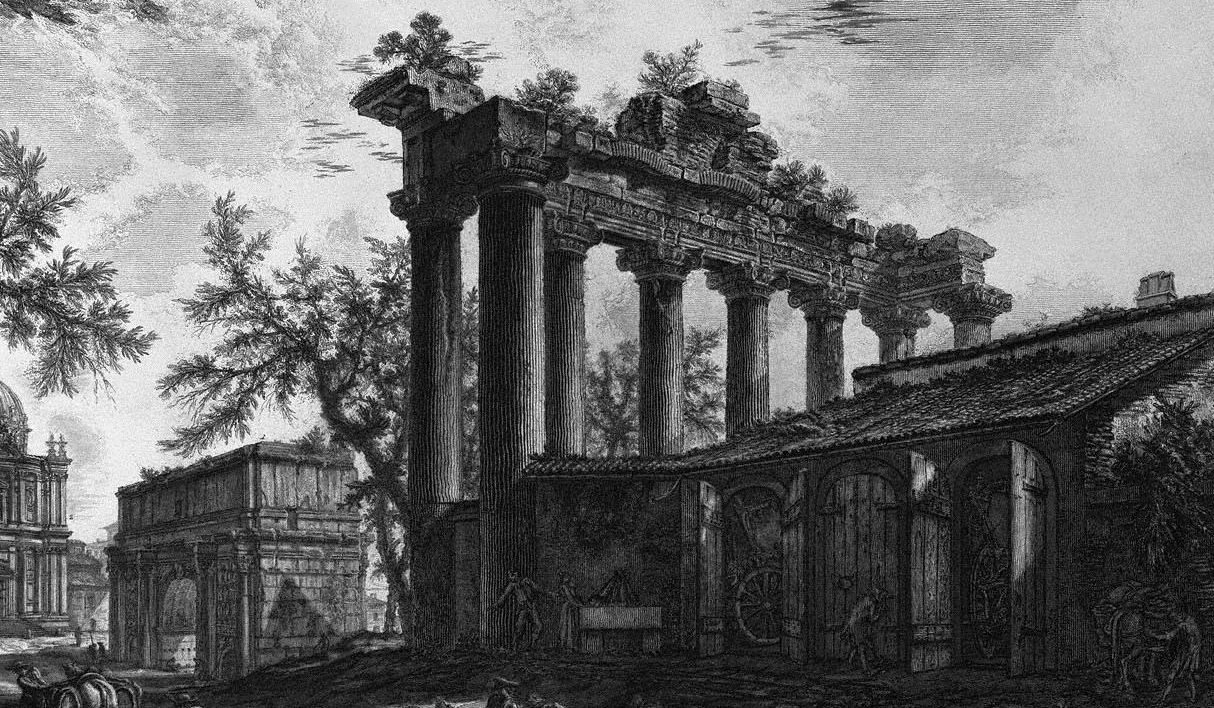
We can see how far we have fallen, as most Americans today would define liberty as “doing whatever you want”, not the ability to avoid the servile and effeminate nature of courtiers. It is also important to note that the Founding Fathers were afraid of mob democracy because it leads to the elevation of demagogues, who quickly bring in a new tyranny, one that is often worse than the old tyranny they originally protested. Thus true, lasting liberty is dependent on the virtues of moderation and self-control, not on the unlimited pursuit of personal desires.
Wishing to avoid the dangers of both servile tyranny and anarchistic democracy, America was founded as a mixed-government constitutional republic. The Founding Fathers deeply hated tyranny, and knew that tyranny often arose from the excessive concentration of wealth and power in the hands of a dictator or a hereditary oligarchy. But they were equally aware that tyranny could also come from a pure democracy, where the whims of the people could easily be controlled by subversive forces. In short, they understood that conflict and resentment amongst different social classes could result in tyranny, but that eradicating class distinctions (as Marxism proposes) would be impossible. As a solution to this problem of conflicting class interests, they devised a form of government that would be a mixture of democracy, aristocracy, and monarchy. The Constitution was designed not only to preserve liberty, but to preserve order and social harmony.
The House of Representatives served as the democratic branch of the government, because these were the only officials who, in the original Constitution, were directly elected by the people. Senators were selected by state legislatures, which were assumed to represent the interests of the political elite in the respective states, and thus the Senate was considered the aristocratic segment of the government (the lengthy six year term of a Senator, as opposed to two years for Representatives, was another measure meant to ensure that Senators could act more independently of shifting public opinion). And finally, the President, who was selected by the electoral college, represented the monarchical function. The President was given an independent authority not derived from an elected parliament, ensuring that he could be a true leader. Another feature of the Constitution meant to guard against the chaos of democratic revolution was the limit on federal power and the resulting emphasis on local control of local concerns. States and counties were given extensive authority when it came to issues that did not immediately affect the entire nation, because a government made up of numerous semi-autonomous political bodies is much less susceptible to subversion and disorder.
Thus we can see that true American liberty is not a panacea or magical transformation. Simply giving “liberty” to a nation is futile without ensuring the preservation of a strong public morality and harmonious social order. Failure to recognize this has led to much misplaced enthusiasm for the French Revolution, where absolute freedom and pure democracy were championed. The great English conservative Edmund Burke addressed this point when discussing the French disaster of 1789:
Abstractedly speaking, government, as well as liberty, is good; yet could I, in common sense, ten years ago, have felicitated France on her enjoyment of a government, (for she then had a government,) without inquiry what the nature of that government was, or how it was administered? Can I now congratulate the same nation upon its freedom? Is it because liberty in the abstract may be classed amongst the blessings of mankind, that I am seriously to felicitate a madman who has escaped from the protecting restraint and wholesome darkness of his cell on his restoration to the enjoyment of light and liberty? Am I to congratulate a highwayman and murderer who has broke prison upon the recovery of his natural rights?
…I should therefore suspend my congratulations on the new liberty of France, until I was informed how it had been combined with government, with public force, with the discipline and obedience of armies, with the collection of an effective and well-distributed revenue, with morality and religion, with solidity and property, with peace and order, with civil and social manners. All these (in their way) are good things, too; and without them, liberty is not a benefit whilst it lasts, and is not likely to continue long.
Burke was correct to compare democratic revolutions to criminals escaping from prison, as both events tend to result in further violence and destruction. Yet despite the obvious misery and chaos caused by such strivings for “freedom”, the mainstream culture continues to praise this revolutionary attitude. This is due partly to the natural appeal that the promise of unlimited freedom has for morally corrupt individuals, and partly to the deliberate efforts of the Jews to destroy all traditional order in White Christian societies.
The power that the Jews derive from manipulating this revolutionary fervor became obvious after the Bolshevik conquest of Russia. In the hands of the Jews, the misplaced love of “liberation” became a tool of world domination. Following their victory in Russia, Jewish Marxists throughout Europe plotted similar revolutions. Industrialization had led to the widespread exploitation of the working class, and the inability of the factory bosses to address this exploitation made workers easy targets for Marxist agitators. Without a patriotic, traditionalist solution to worker exploitation, the trades unions throughout Europe were quickly seduced by the Jewish poison.
But beginning in the 1920s, a new political revolution began in Europe. This movement, known as Fascism or National Socialism, recognized that although Marxism claimed to fight for better conditions for workers, its true aim was destroy nationality, religion and family, the things which the workers actually held dear. Therefore, in opposition to both Marxism and laissez-faire capitalism, the National Socialists proposed an economic order that would both inspire free competition and innovation, and also prevent exploitation by making the interests of both the worker and the capitalist subservient to the common good of the nation. This plan recognized the reality of class difference and sought to build social harmony by giving the different classes and professions fair representation in the government.
From Mein Kampf:
According to the National Socialist concept, it is not the task of the trades union to band together certain men within the national community and thus gradually transform these men into a class, so as to use them in a conflict against other groups similarly organized within the national community. We certainly cannot assign this task to the trades union as such. This was the task assigned to it the moment it became a fighting weapon in the hands of the Marxists. The trades union is not naturally an instrument of class warfare; but the Marxists transformed it into an instrument for use in their own class struggle. They created the economic weapon which the international Jew uses for the purpose of destroying the economic foundations of free and independent national States, for ruining their national industry and trade and thereby enslaving free nations to serve Jewish world-finance, which transcends all State boundaries.
In contradistinction to this, the National Socialist Trades Union must organize definite groups and those who participate in the economic life of the nation and thus enhance the security of the national economic system itself, reinforcing it by the elimination of all those anomalies which ultimately exercise a destructive influence on the social body of the nation, damaging the vital forces of the national community, prejudicing the welfare of the State and, by no means as a last consequence, bringing evil and destruction on economic life itself.
Therefore in the hands of the National Socialist Trades Union the strike is not an instrument for disturbing and dislocating the national production, but for increasing it and making it run smoothly, by fighting against all those annoyances which by reason of their unsocial character hinder efficiency in business and thereby hamper the existence of the whole nation. For individual efficiency stands always in casual relation to the general social and juridical position of the individual in the economic process. Individual efficiency is also the sole root of the conviction that the economic prosperity of the nation must necessarily redound to the benefit of the individual citizen.
The National Socialist employee will have to recognize the fact that the economic prosperity of the nation brings with it his own material happiness. The National Socialist employer must recognize that the happiness and contentment of his employees are necessary pre-requisites for the existence and development of his own economic prosperity.
National Socialist workers and employers are both together the delegates and mandatories of the whole national community. The large measure of personal freedom which is accorded to them for their activities must be explained by the fact that experience has shown that the productive powers of the individual are more enhanced by being accorded a generous measure of freedom than by coercion from above. Moreover, by according this freedom we give free play to the natural process of selection which brings forward the ablest and most capable and most industrious. For the National Socialist Trades Union, therefore, the strike is a means that may, and indeed must, be resorted to as long as there is not a National Socialist State yet. But when that State is established it will, as a matter of course, abolish the mass struggle between the two great groups made up of employers and employees respectively, a struggle which has always resulted in lessening the national production and injuring the national community. In place of this struggle, the National Socialist State will take over the task of caring for and defending the rights of all parties concerned. It will be the duty of the Economic Chamber itself to keep the national economic system in smooth working order and to remove whatever defects or errors it may suffer from. Questions that are now fought over through a quarrel that involves millions of people will then be settled in the Representative Chambers of Trades and Professions and in the Central Economic Parliament. Thus employers and employees will no longer find themselves drawn into a mutual conflict over wages and hours of work, always to the detriment of their mutual interests. But they will solve these problems together on a higher plane, where the welfare of the national community and of the State will be as a shining ideal to throw light on all their negotiations.
Here again, as everywhere else, the inflexible principle must be observed, that the interests of the country must come before party interests.
The task of the National Socialist Trades Union will be to educate and prepare its members to conform to these ideals. That task may be stated as follows: All must work together for the maintenance and security of our people and the People’s State, each one according to the abilities and powers with which Nature has endowed him and which have been developed and trained by the national community.
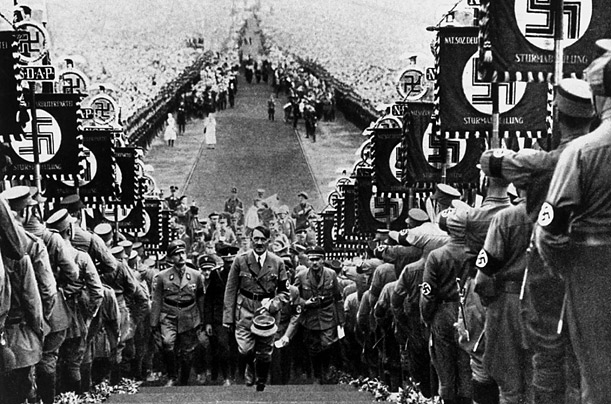
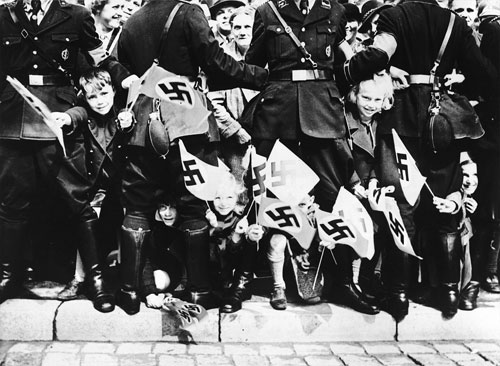
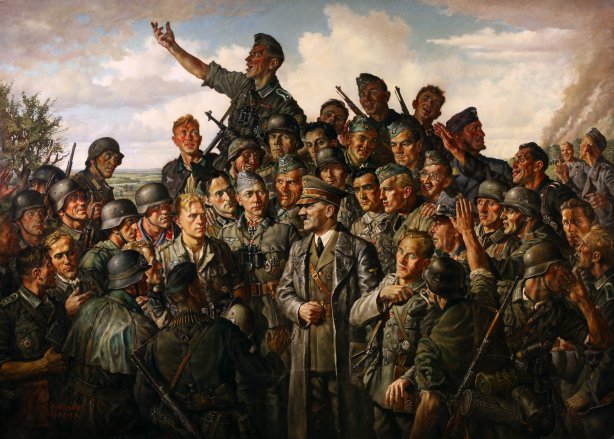
In our struggle against the Jewish New World Order, it is obvious that racial survival must be one of our main concerns. But it cannot be our only concern. Rather than simply being “pro-white”, we need to articulate and promote a distinct political system, one based on the Classical European and American love of justice, order and harmony. “Freedom” by itself is not enough, nor is bare survival. We must survive in order to live just, heroic and virtuous lives.
